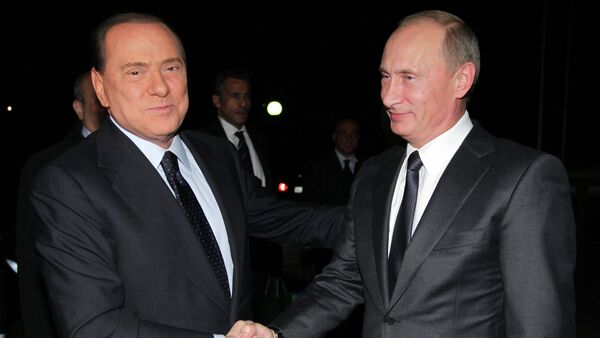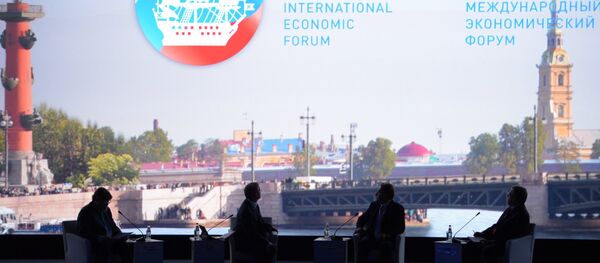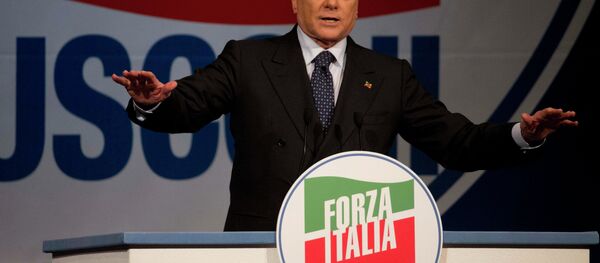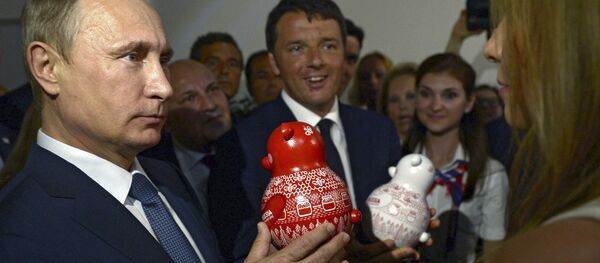Italy's former prime minister announced his trip to Moscow in a Facebook post last weekend.
Mi reco nella Federazione Russa per alcuni giorni per incontrare il Presidente Putin, su suo stesso invito. C'è una…
Posted by Silvio Berlusconi on Thursday, June 25, 2015
"I am going to the Russian Federation for a few days to meet President Putin, who invited me. The tension between the West and Russia is getting worse and worse, and its consequences are being felt on the Italian economy as well as on peace prospects. I cannot refrain from getting involved anymore."
"It was me who in 2002 got the NATO-Russia treaty between NATO and Russia signed. Again it was with me as G8 president [April 2010] that the preliminary agreement for the reduction of nuclear weapons was signed by President Obama and the President Dmitry Medvedev," Berlusconi says.
Berlusconi especially regrets the passing of what he calls "the spirit of Pratica di Mare" from the name of the US airforce base near Rome where the treaty between NATO and Russia was signed:
"The USA are defacing all the results I obtained in 2002 with the creation of the NATO-Russia Council. It helped bring the Cold War to an end."
Galvanized by the good results obtained by his Forza Italia party in the May 2015 Italian regional elections and with his his judicial troubles over, Berlusconi has made yet another comeback by building a right-wing alliance with Matteo Salvini's Lega Nord party.
Salvini himself has long been a vocal opponent of anti-Russia sanctions.
Natural Allies Against "Islamic Integralism"
Berlusconi traveled to Russia on Friday last week. He had originally planned to discuss Syria, Iraq and, of course, Ukraine with President Putin. A few hours into their meeting, news of the Tunisian massacre broke.
This, according to newspaper Il Giornale, "convinced Berlusconi even more of the need to reinforce the axis with Moscow, to confront Islamic terrorism." Berlusconi said:
"Putin is our natural ally against Islamic integralism."
Interestingly, Salvini made a similar point, when he told Italian TV on Saturday evening:
"The first thing we have to do against Islamic terrorism is to stop alienating Russia. Russia is a key ally here."
"Don't Take Russia Away From Us"
Berlusconi's initiative will certainly meet with favor among Italy's business community, whose leaders literally queued to speak to president Putin during his June 14 visit to the Milan EXPO.
The following day, newspaper Corriere della Sera ran a headline titled: "We, Italian entrepreneurs, in crisis because of the Russian embargo." The article reported a meeting called "Don't take Russia away from us" was arranged between branches of Agrifood Italy [an association of Italian producers] and Prime Minister Renzi, in order to discuss trade and food exports.
The figures speak for themselves:
"In the first two months of 2015 the Italian food exports to Russia has halved (-46.3)."
Meanwhile, The Huffington Post in Italy wrote: "Czar Vladimir knows he plays on home turf. Rooting for him are not only Salvini's Lega Nord supporters, but also those suit-wearing gentlemen who crowd the Milan EXPO on Russia Day."
The gentlemen referred to in the article are "executives of Italy's most important state-owned companies, from Eni to Finmeccanica." As for the private firms, "the list would be endless," according to The Huffington Post.
It could also be said that Berlusconi too is playing on home turf. Following the Italian regional elections, his Forza Italia and Salvini's Lega Nord parties managed to oust Renzi's Democratici party from key northern regions such as Veneto and Liguria — which shows the closeness of his relationship with Italy's "suit-wearing gentlemen."
The Search for a Successor
Having rebuilt a workable right-wing coalition, Berlusconi's next goal is to conquer big Italian cities such as Turin, Milan, possibly even Rome — during the 2016 municipal elections. Italy's general elections will only take place in spring 2018.
Berlusconi, however, is 78 and knows that he will not be able to assume office as prime minister aged 81 — to work at the usual hectic pace until, say, 86.
Should a right-wing coalition win Italy's next general election, rising start Matteo Salvini, 42, would be a much more likely candidate for the role of prime minister.
Indeed the search is on for a successor at the helm of the Forza Italia party too.
So, Berlusconi is back, and even though he's managing various companies, choosing the best players for AC Milan, leading the Italian government — he still wants to be the chief-architect, the creative force, behind the new Forza Italia Party, the new right-wing coalition and, possibly, a new government.
At the same time, he is willing to give bipartisan advice over major foreign policy issues, as when he told current PM Renzi: "Do not approve the anti-Russian sanctions, and, if you cannot stop them, just do not apply them."
This is Berlusconi, always the Machiavellian. Yet in times of 'war' and expansion of "defensive" alliances, Berlusconi's cunning political skill might give Italy some of its sovereignty back.





